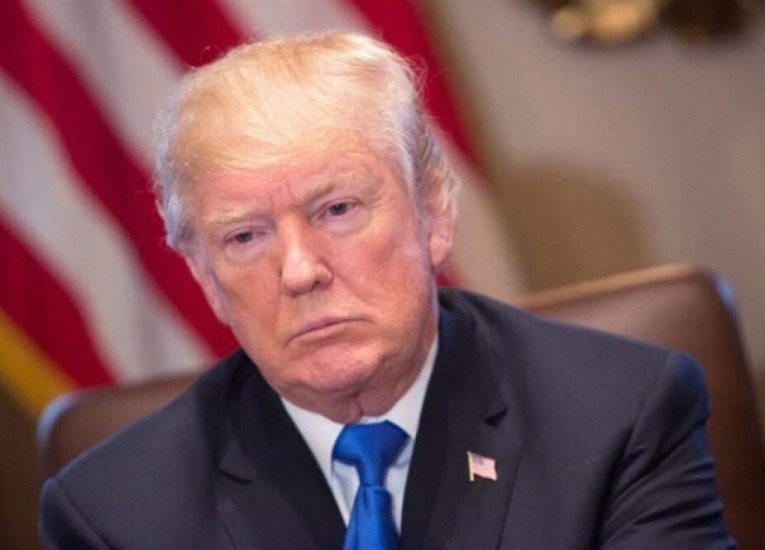Iran sanctions: Facade of human rights and white feminism

Some people argue that the U.S. sanctions on Iran are a way to punish the country for its nuclear ambitions, even though it has brought untold misery to the ordinary Iranian people. It's a well-known fact that the crippling sanctions are like a war against the people, and it hardly serves the purpose of the imposer.
Indeed, the unilateral sanctions have harmed Iran in many ways, including damage to its economy and medical sector. Today's pandemic of coronavirus demands a well-equipped medical and health care system with a will to fight back. The virus has ended the options to think from the Westphalian pigeon holes, and the indication is towards cooperative and collective efforts of the entire world.
The Islamic Republic of Iran is under harsh international sanctions regime imposed by the United States and other international entities. It all started with the Islamic Revolution in Iran (1979) that toppled America's friend, ally and stooge authoritarian ruler of Iran. The leading cause of the US wrath was after Iranian students took the US diplomats as their hostages in the same year.
Consequently, the Executive order no 12170 froze Iranian assets including bank deposits, gold and other properties along with trade embargo. The Algiers Accord in 1981 was a détente, but the sanctions were again expanded in 1995 mainly on the charge of Iran's support to Palestinian resistance. Then came the UN resolution no 1696 of 2006 that expressed concern over the nuclear intentions of the country. The US sanctions besieged Iran's investments in the petroleum industry, exports, banking, and so on.
However, the Iranians claimed that its Uranium Enrichment Program is for civilian purposes, including generating electricity and medical purposes. A long diplomatic battle brought the Islamic Republic and Western powers on the negotiating table. With the result, the nuclear deal between Iran and the group of world powers or the permanent members of the Security Council was concluded in 2015. However, the Trump administration withdrew from the deal in 2018 and stalled the agreement and reimposed unilateral sanctions and illegal embargo.
Studies suggest that the extended regime of sanctions have similar effects as a war. The Western powers project themselves as the champions of human rights, yet the human rights of ordinary Iranians are sabotaged structurally without any regard to the international conventions like the Universal Declaration of Human Rights.
The sanctions breach right to life in the country. Due to different layers of sanctions, access to medical care becomes difficult for a common Iranian, distribution of medical supplies and medicines is disrupted and as mentioned elsewhere that insurance is a sector under sanction, so it becomes difficult for patients to get fully covered. The surveys are available that say that many Iranians die of non-availability of medicines. The unjust and cruel sanctions have devastated the Iranian economy and consistently devalued Iranian currency, driving millions of people to poverty, making imported good unaffordable.
Nevertheless, the idea is to question human rights advocates and feminists in the Western world, about their silence on this blatant crime against humanity. During these days of the outbreak of coronavirus, various pictures, videos and news items emanating from the Islamic Republic are heartbreaking. A tremendous outpouring of support on the social media for health workers and doctors' who are at the forefront of fight against coronavirus shows that the crisis is at least a leveller in this world of disparities.
Earlier, a picture was floating on the social media that showed a female Iranian physician on duty treating the COVID-19 patients, who eventually lost her life to the same disease. The very moving picture of Dr Shirin Rouhani Rad will always symbolise the courage that medical practitioners in Iran are showing in this crisis. However, it will also epitomise human tragedy and the increased insecurity of humans in the combativeness of the nation-states. Additionally, the politics of convenience and disparity in the name of human rights and women rights are also displayed.
Syedah Azamat Mosavi, a member of Scientific Association of Midwifery in Iran, also lost her life to COVID-19. Condoling the death of Mosavi, International Confederation of Midwives emphasised that there is an increased need for protective equipment in countries like Iran. The equipment will help limit the risk while one comes in contact with the virus.
The 'one death every ten minutes' reports also suggest the terror unleashed on the Iranians and the kind of burdens it is creating for Iranian women. Under the sanction regime, Iran is unable to purchase medical equipment to tackle the pandemic, and it is risking all health care workers, including female doctors, nurses and others.
A report issued by the Ministry of health of the Islamic Republic on March 12 says that there is requirement of 10,00000 Personal Protective Equipment Kits in the country, 3200000 Novel Corona Virus Diagnostic Test Kits, 12000000 Protective Masks N95 and so on.
It reminds me of the obsession of white feminists with women in Taliban Afghanistan. It widely prompted the western media to legitimise the 2000-2001 US invasion of the country, that Afghan women be saved from the brute of the Taliban, the blue 'eyed girl' was one such story. The voice of Western feminists is silent over the burdens that the sanctions and embargo have put on the Iranian women and other marginal groups like children.
The so-called support to some women voices present in their luxurious capitals, West attempts to present itself as the messiah of eastern women. However, the politics of conveniences of these human rights protagonists is only collaboration with the powerful.
While as, the coronavirus once again exposes the elicit and supremacist feminists too. Such feminism is a good bit part of the problem and not the solution.
The author is a Research Scholar at Jawaharlal Nehru University, New Delhi. She also teaches Political Science and specialises in International Studies, can be reached at khairunnisaaga@gmail.com

